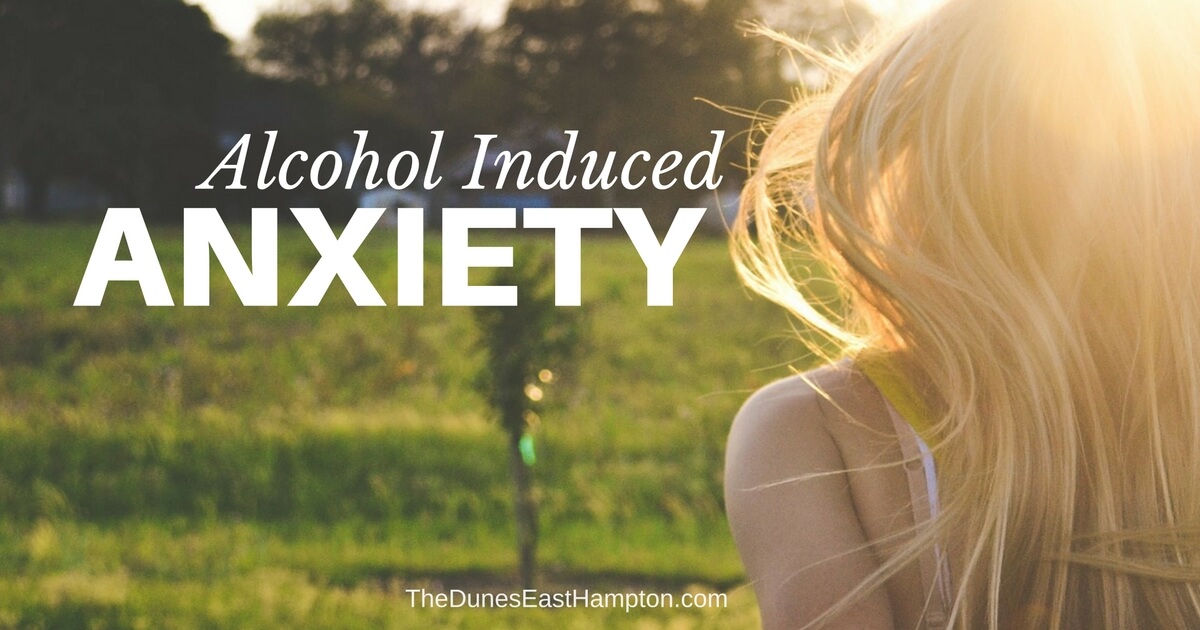We all experience anxiety from time to time, whether it’s over a big job interview or giving a speech. Occasional anxiety is a normal response to stress. However, some anxiety sufferers may turn to alcohol to cope. How do alcohol and anxiety interact when this happens?
Alcohol abuse does more than just affect physical health. Mixing anxiety and alcohol creates a vicious cycle that exacerbates anxiety symptoms and harms mental health. See how alcohol has an effect on your mental health.
What Is Anxiety?
Anxiety is a feeling of unease or fear. In a clinical sense, general anxiety disorder (GAD) is an ongoing condition where overwhelming feelings of unease disrupt everyday activities. It has several symptoms, including:
- Feelings of impending doom
- Headaches
- Fatigue
- Insomnia
- Difficulty concentrating
- Nausea or diarrhea
- Trouble enjoying situations
- Sweating
GAD vs. Panic Disorder
Another type of anxiety is panic disorder. Panic disorder occurs when a person experiences repeated episodes of extreme panic – also known as panic attacks. These attacks can trigger an intense sense of fear, making it impossible for a person to continue his or her current task.
Panic attack symptoms include:
- Dizziness
- Nausea and vomiting
- Shortness of breath
- Hot flashes
- Feeling disconnected from the experience
- Shaking
- Palpitations
People experiencing a panic attack may feel like they’re going to die. The mental effects of a panic attack are very real.
What Is The Relationship Between Alcohol And Anxiety?
Anxiety disorders prevent people from leading fulfilling lives. It’s not uncommon for anxiety sufferers to self-medicate with alcohol. Alcohol temporarily takes the edge off and decreases inhibitions.
Anxiety sufferers who drink may feel like this system is working, but in reality, alcohol only makes anxiety worse. To address mounting anxiety, a person may consume even more alcohol, putting him or her on the path to addiction. It’s always beneficial to take an alcohol assessment in order to monitor your alcohol consumption.
Alcohol, Anxiety And Effect On Your Mental Health
A recent University of North Carolina School of Medicine study suggests that alcohol actually rewires your brain and makes it harder to recover from psychological stress. Researchers found that mice who were given excessive amounts of alcohol actually experienced changes in brain physiology that affected their reaction to stress stimuli.
Over the course of a month, one group of mice was given alcohol at twice the legal driving limit for humans (experimental group), and another group had no alcohol exposure (control group). Both the control and experimental groups were classically conditioned to fear the sound of a bell by issuing an electric shock (stressful stimulus). After the electric shock was removed, the experimental group learned to relax again after hearing the bell. The control group displayed a different response, cowering in fear even after the shocks had stopped.
Researchers compared the brains of the two groups and found some notable differences. In the experimental group – the mice who were exposed to excessive amounts of alcohol – nerve cells in the prefrontal cortex were shaped differently. Additionally, the NDMA receptor, which is influential in memory function, appeared to have suppressed activity when compared to the control group.
The Connection Between Alcohol And Stress
Our bodies react to stress through a complex series of hormonal reactions. One such reaction is cortisol, which many people refer to as the “stress hormone” in popular culture. We often blame cortisol for storing excess fat.
Alcohol stimulates the production of cortisol. As alcohol tolerance develops, cortisol production increases. In fact, one study found that up to 40 percent of chronic alcohol users exhibited cortisol overload comparable to those who have Cushing’s Syndrome, a tumor of the pituitary or adrenal glands that causes excess cortisol production.
Implications For Alcohol And Anxiety Treatment
There are many treatment options available to people suffering from comorbid conditions:
- Targeted therapies toward the NDMA receptors could help alleviate the overwhelming feelings of anxiety experienced by these patients.
- Cognitive behavioral therapy and pharmacology provide relief from GAD and panic disorder.
- Addiction treatment is essential to improving patient outcomes, as most will see symptoms lessen in severity after abstaining from alcohol.
A dual diagnosis treatment program is the only way to effectively address both problems. Alcohol withdrawal can produce feelings of anxiety, which therapists can help control. Once a patient completes the initial detox period, he or she may work with rehab professionals to pinpoint triggers for remaining feelings of anxiety and to employ healthy coping strategies.
Alcohol and anxiety share a mutual and destructive relationship. Alcoholics must understand the correlation between the two to maximize their chances of long-term recovery.
Click the button below to seek the help you or a loved one needs today.








